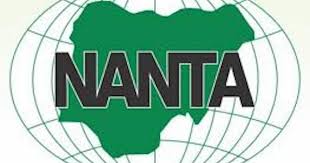There is growing tension in Nigeria’s travel and tourism industry as local travel agents, under the National Association of Nigerian Travel Agencies (NANTA), raise alarm over the growing activities of cross-border agents selling tickets to Nigerian passengers from outside the country.
These foreign-based agents, registered under the International Air Transport Association (IATA), operate in multiple countries and have begun to dominate a portion of Nigeria’s travel market by booking outbound tickets from their international offices for Nigerian travellers. The result is that flights are fully booked, but the revenue bypasses local Nigerian agencies and the domestic economy.
In interviews with several Nigerian travel agents. It was learned that this trend is beginning to threaten the survival of local travel businesses and the jobs of Nigerian-based staff working for international airlines.
Outbound flight tickets from Nigeria are significantly higher than those from many other countries, but instead of buying tickets locally, many Nigerian passengers are now turning to agents based in the UK, Ghana, or elsewhere to purchase cheaper fares. The result is that sales recorded by foreign agents do not reflect in Nigeria’s economy or its airline sales statistics.
Local travel agents say this development is deeply damaging. Not only are Nigerian agents losing business, but international airlines may also begin to see Nigeria as an underperforming market, potentially reducing their local staffing and investment.
During the 49th Annual General Meeting of NANTA held recently in Lagos, the association’s president, Yinka Folami, expressed strong opposition to the practice, describing it as “criminal and sinful”. Folami revealed that Nigerian agents have lost about 40% of their market share to these cross-border competitors. He also announced that five travel agencies operating across various African countries are now under government investigation for possible money laundering linked to cross-border ticket sales.
“Cross-border sales are a sin and disrespectful to our economy,” Folami said. “We will stop it. We should also stop buying from them.”
He noted that the Nigerian government has requested names of the companies involved, and that investigations are ongoing.
However, not all members of NANTA agree with this approach. A senior member of the association, who asked not to be named, criticised the leadership’s strategy and argued that the real blame should go to the airlines and the Nigerian government for allowing a pricing environment that disadvantages local agents.
He questioned why airfares from Nigeria remain high despite what should be a “home advantage,” and why agencies shouldn’t leverage international contacts to secure better deals for their clients.
“Instead of fighting our colleagues who are simply growing their business, we should be asking why tickets sold in Nigeria go for N1.5 million while the same ticket sells for N1.1 million in the UK,” he said. “Shouldn’t we be collaborating with those who have broader networks?”
Another agent, Kazeem Taoreed, said the high cost of tickets in Nigeria stems from excessive government charges on international airlines, though he did not specify which charges. He urged the federal government and the airlines to review the current fare structure to make tickets more affordable for Nigerians.
“The ball is in the government’s court. The excessive costs are because of high taxes and fees imposed on airlines. If those charges are reviewed, fares will go down, and local agents won’t be sidelined,” he said.
Attempts to get a response from the Nigeria Civil Aviation Authority (NCAA) proved unsuccessful. Calls and text messages to Michael Achimugu, Director of Public Affairs and Consumer Protection at NCAA, went unanswered.
As tensions rise within the travel sector, industry stakeholders are now faced with the choice of either escalating the internal conflict or pushing for reform through policy engagement and dialogue with the Nigerian government and international airlines. While local agents seek protection and fairness, others argue for adaptation and collaboration in a changing global market.
